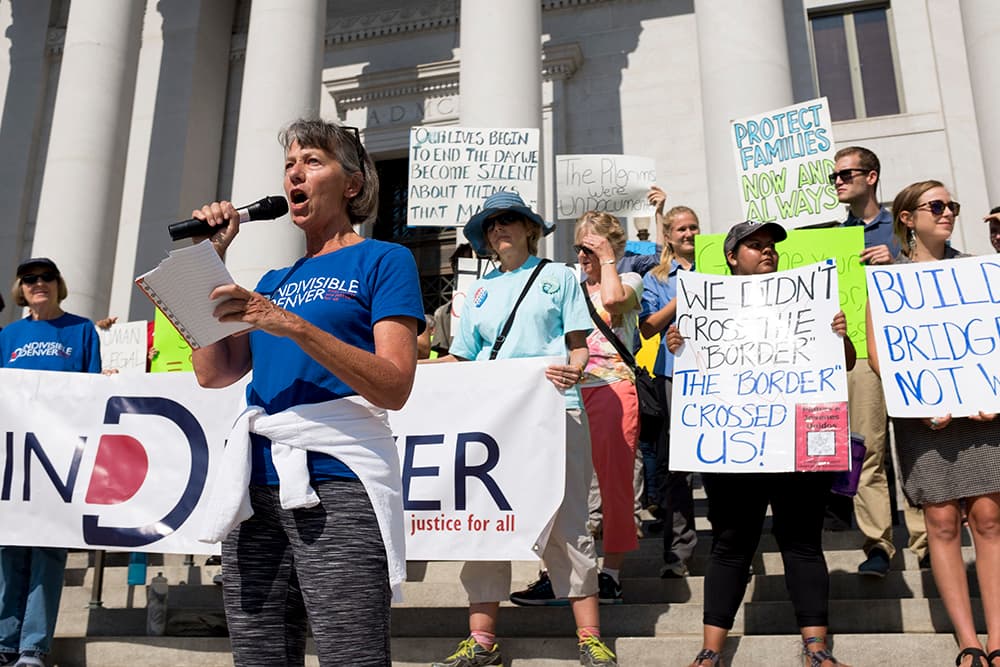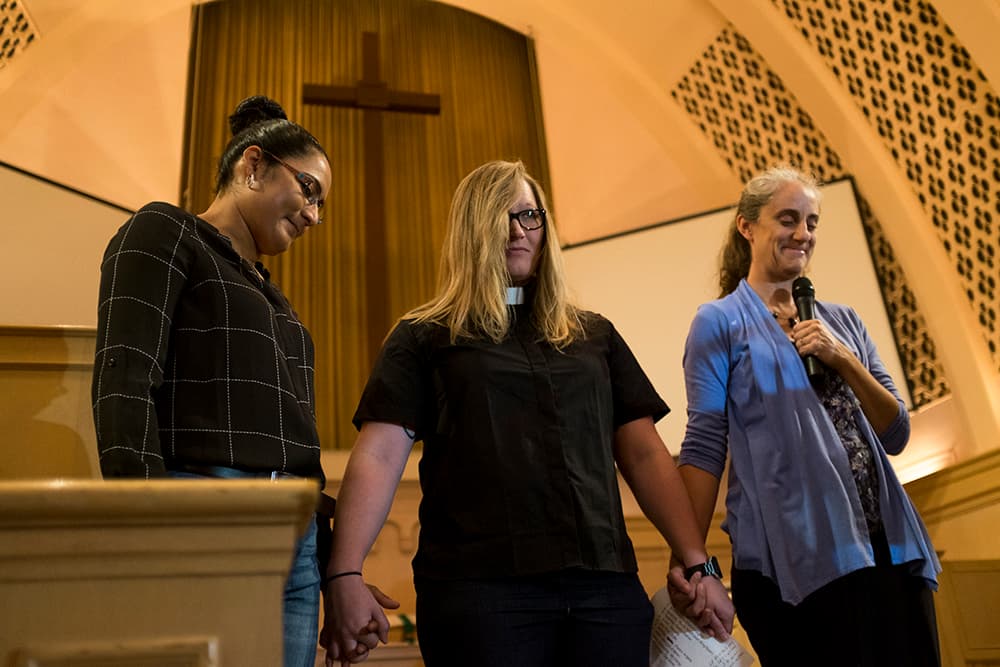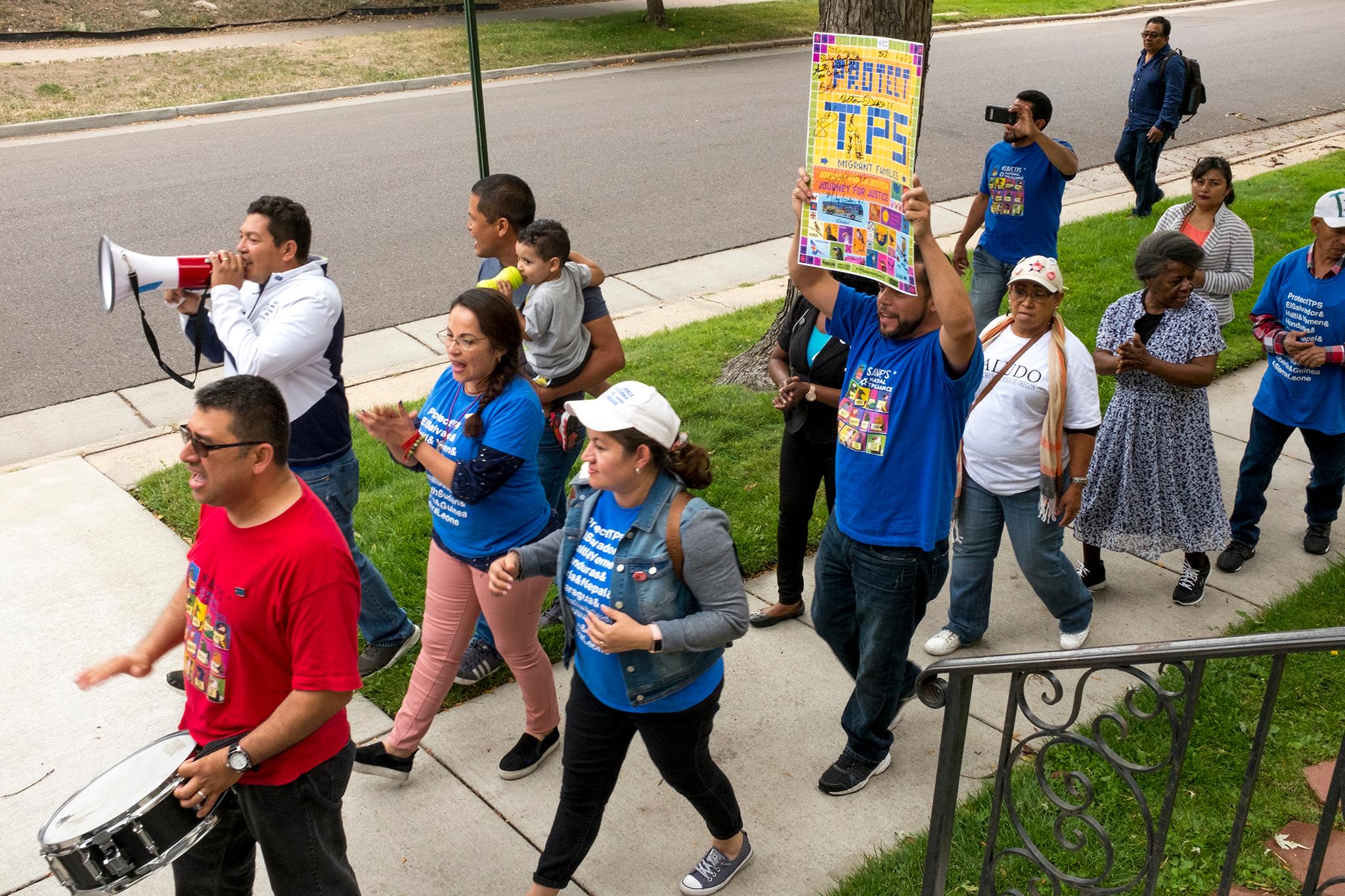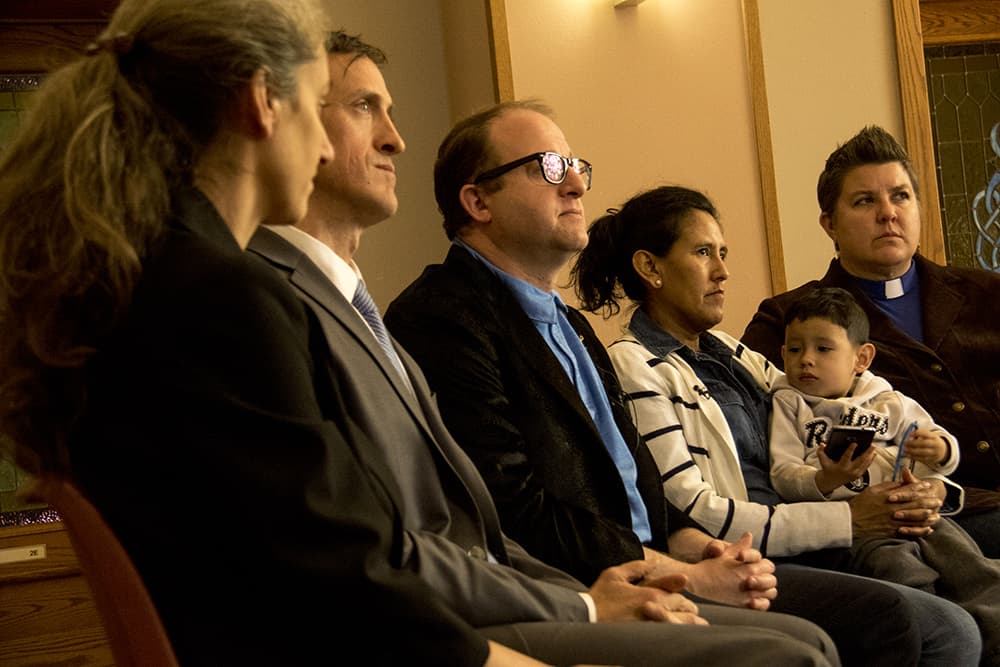When Jennifer Piper, the interfaith organizer for immigrant rights at American Friends Service Committee, saw Governor-elect Jared Polis had announced a transition team following his election, she noticed what to her seemed like a glaring omission.
The transition committee is responsible for helping build his cabinet (he later announced an open hiring process for directors in several state departments). But Piper said she felt concern and surprise; there was no mention of a position responsible for overseeing or developing immigration policy.
"Congressman Polis has been one of the leading voices trying to educate Congress and trying to lead toward a comprehensive reform," Piper said, pointing out his past support of Dreamers and finding improved worker visa programs. "So as a congressman, he's been an ally for a number of years."
Though there wasn't any specific mention of an immigration policy position, Polis seems open to providing more assistance.
His spokesperson Mara Sheldon said in a statement Thursday that the governor-elect, "would be thrilled if the legislature created and funded an Office of Immigrant Integration in the Governor's Office or a state agency." The state currently doesn't have any such an office in the state's Department of Human Services.
Sheldon cited Polis' past work supporting immigrants including creating the New America School, which serves immigrant children, and for supporting immigration reform on a national level.
The governor-elect on Thursday announced the first round of staffing hires, which includes members of his senior staff, a chief policy advisor and legislative counsel, and a legislative director. There are 19 cabinet positions left to be hired.
"Any policy solutions in key focus areas like immigration that come up in this legislative session will be handled by the legislative and policy teams which are still being built, and who will not be able to start until January," Sheldon said in a statement to Denverite.

Piper wants a seat at the table. She thinks this can come in the form of a person who is knowledgeable about the way the state and federal immigration laws interact. It doesn't necessarily have to be a person whose sole focus is on immigration, but instead part of their overall policy responsibilities.
Dana Miller, a volunteer with the progressive and grassroots group Indivisible Denver, said immigration is largely interwoven into a lot of social justice issues the group advocates for in the city and across chapters in the U.S. The group tweeted out an email they were sending to Polis requesting information.
"I don't think we can really separate that out as even being a separate issue. It needs to have that perspective in all decisions," Miller said. "
There are currently just under 200,000 undocumented immigrants living in Colorado.
That's according to the Pew Research Center, whose latest estimate from 2016 shows there are about 190,000 unauthorized immigrants living in Colorado. The estimate is slightly down from 2015.
Pew reported last month that the overall number of unauthorized immigrants in the U.S. fell to its lowest level in more than a decade. Colorado was not among the states that registered statistically significant changes over the past 10 years.
The concern Piper felt comes from decades of what she said is "successful" organizing by immigrant rights advocates in Colorado that have helped enact laws like allowing driver licenses and providing in-state tuition for undocumented immigrants.
"All of these things have been part of a strategy and a movement building from our perspective, and when we don't have a strong line of communication with the governor's office, then that can often turn into a relationship that's fraught," Piper said.
She outlined some of the population's needs in Colorado. For one, advocates are hoping to expand the driver license program. There are currently only a few offices where undocumented immigrants can get their licenses in the state.
"There are about 50,000 people who could qualify for a license but haven't been able to access one because of the backlog and trying to get into an appointment," Piper said.

The license adds a level of assurance for undocumented people who Piper said previously may not have been comfortable contacting police, for example, and attracting unwanted attention when reporting a crime.
Colorado Department of Revenue spokesperson Lawrence Pacheco said in an email Thursday the four offices where resident who can't demonstrate "lawful presence" can schedule an appointment are in Aurora (renewals only), Colorado Springs, Denver and Grand Junction.
A new law going into effect on January 1 allows undocumented residents to use a social security number to obtain a license.
Piper hopes to keep public services available, to immigrants and refugees, which is currently facing challenges at the federal level.
It's becoming increasingly challenging for some immigrants, including those with proper documentation, to use public services. Some are avoiding using public services altogether due to fears it may jeopardize their future immigration status.
The reason? The Trump administration is considering expanding what defines a "public charge." NBC News reports the Department of Homeland Security has proposed including other things like use of SNAP benefits or Section 8 housing as a public charge, which immigration officials can use to consider residency status.

State Sen.-elect Julie Gonzales, who works as policy director for a Denver-based immigrant law firm, said in an interview with Denverite this fall she's heard about the anxiety and fear this proposal is causing.
"We're asking people to basically make the decision between, you know providing healthcare for their kids and applying for status in the future," Gonzales said. "At the end of the day, that's sort of like the root decision, the choice that the government is trying to drive people to make."
Piper wants undocumented immigrants to continue understanding that, in Denver at least, police here won't cooperate with federal immigration authorities or be apprehended while making court visits. It's part of a wider goal to ensure the state remains a welcoming place.
"The state has a role in deciding whether we believe that people in our communities who are part of our community should be living in fear or not," Piper said.











